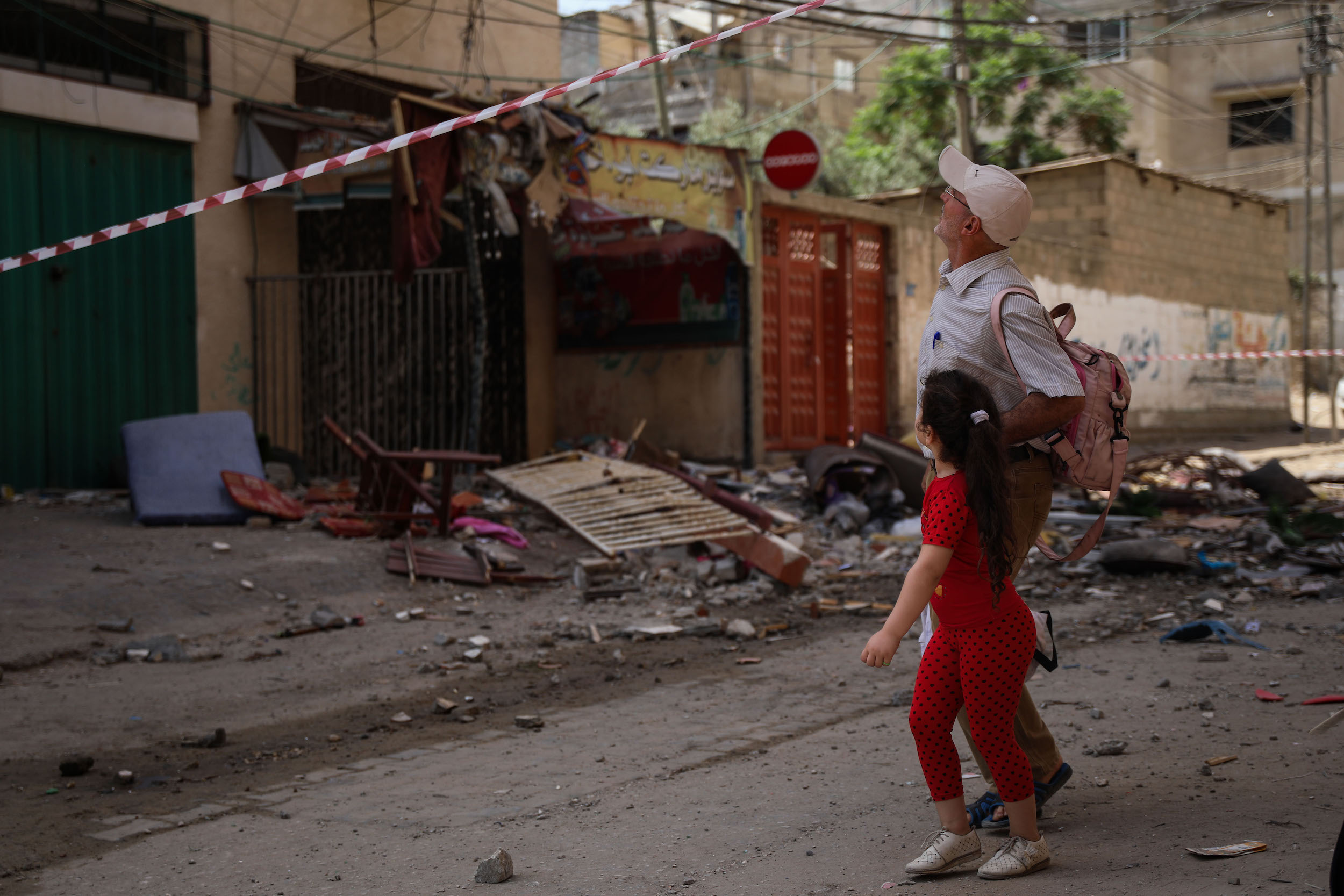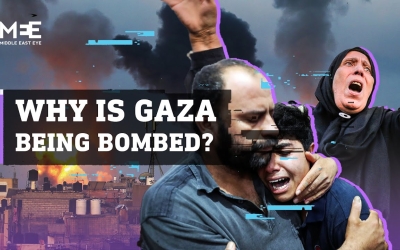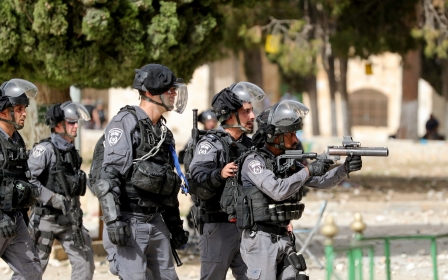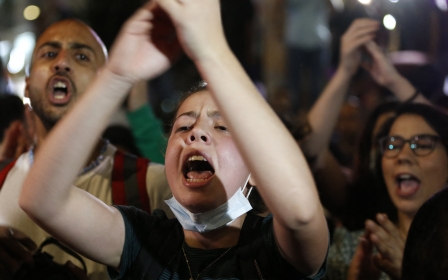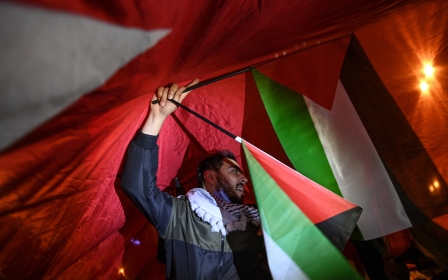Gaza air strikes: Renewed Israel attacks kill Palestinian mother and son
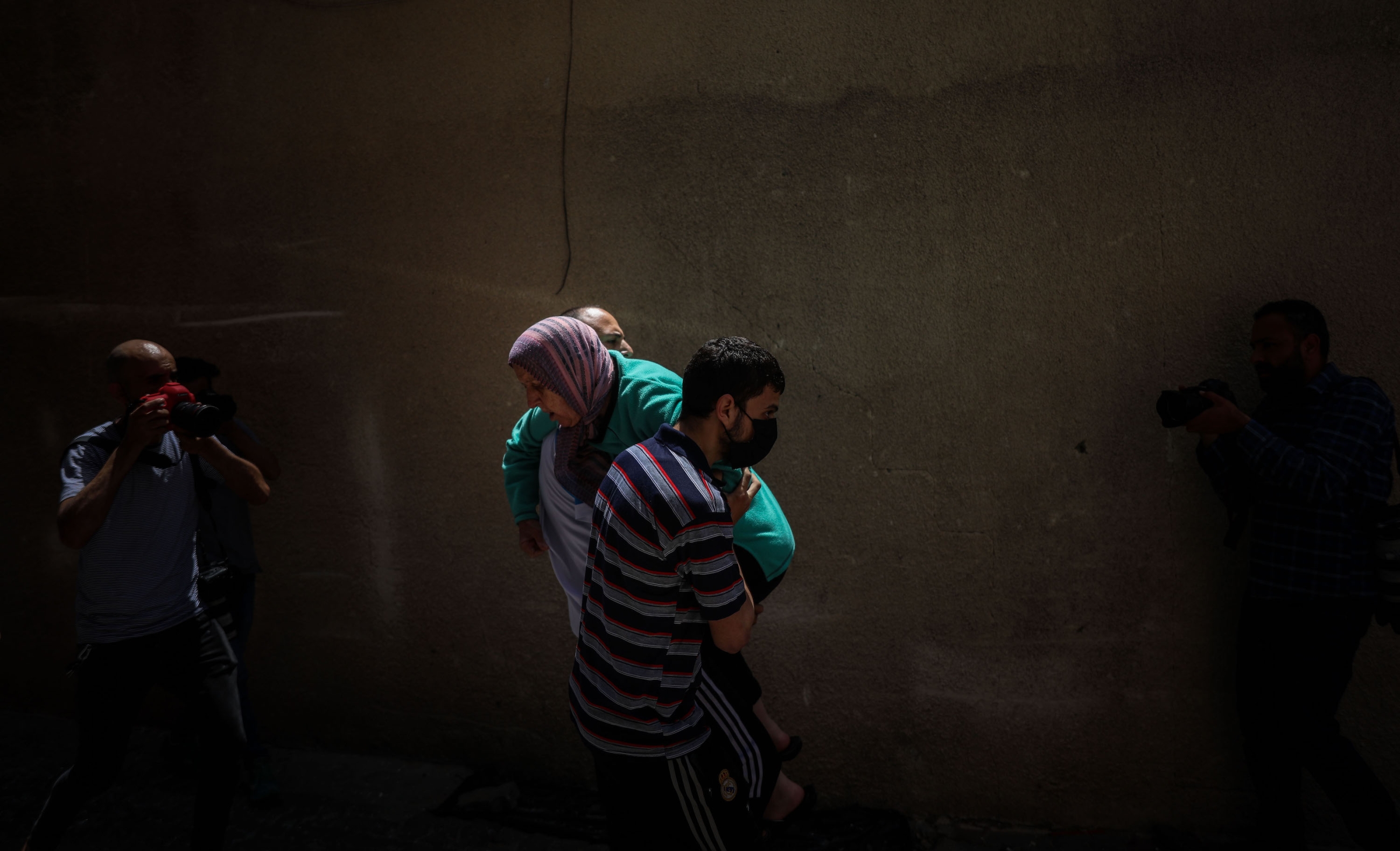
The Israeli air force renewed its bombardment of the Gaza Strip on Tuesday, killing at least 25 Palestinians, including nine children, and injuring 115 others, according to the Palestinian Ministry of Health.
Among those killed were Amira Subuh, a 57-year-old woman, and her 19-year-old son, Abdulrahman, who suffered from a brain injury.
One of Subuh’s neighbours recounted the attack to Middle East Eye.
“We were at the mosque doing the al-Fajr [dawn] prayers when a massive explosion rocked the neighbourhood. I ran out to the street to find out that [Israeli warplanes] had targeted a building belonging to the Nasman family, which had apartments that were rented to other families,” said Saleh al-Khaldi.
'They did not do anything. The occupation assassinated their dreams'
- Saleh al-Khaldi, neighbour of family killed in Gaza attack
“The house was on fire and dust and ruins were everywhere in the street. I rushed to help the building’s residents. Children and women were all screaming and everyone was running not realising what just happened.”
New MEE newsletter: Jerusalem Dispatch
Sign up to get the latest insights and analysis on Israel-Palestine, alongside Turkey Unpacked and other MEE newsletters
“I helped pull out a number of injured residents, as well as two martyred people; a woman and her son who were peacefully sleeping in their home,” he said, referring to Subuh, who lived alone with her son in a small apartment in the al-Shati refugee camp of the north-western Gaza City.
“They did not do anything. The occupation assassinated their dreams.”
The renewed violence has prompted Amnesty International to condemn Israel’s "disproportionate and unlawful” use of force in Jerusalem and the Gaza Strip, calling for an end to arms sales to Israel.
“Israel must not be allowed to continue its rampage against Palestinians who are simply defending their right to exist and protesting against their forced displacement,” said Saleh Hijazi, deputy director for the Middle East and North Africa at the London-based human rights group.
“Mere expressions of concerns about Israel’s utter disregard for its obligations under international law are not sufficient. There must be clear and strong denunciations of the flagrant violations,” he added in a statement released on Monday.
A whole new ‘level of crime’
Khaldi recalled Israel’s military offensive on the besieged enclave seven years ago, where their neighbourhood in the al-Shati camp had witnessed similar attacks.
“We experienced the same shock in the summer of 2014, where the neighbourhood, including homes and mosques, was destroyed. This brought back a nightmare that we have not yet got over.”
But to MEE photographer Mohammed al-Hajjar, who has covered numerous rounds of escalation between the two sides, the latest attacks seemed more violent than Israel’s Operation Protective Edge in 2014.
“The occupation has never reached this level of crime at the beginning of escalations like it is doing now… While the Israeli occupation remains under pressure in the absence of a new government, Palestinians in their homes in Gaza will pay the price during this round,” he said.
One consequence was the immediate cancellation of many traditional activities associated with Ramadan, the holiest month in the Islamic calendar.
Shops in Gaza shut their doors as the attacks escalated, while Muslims around the world prepared for the Eid al-Fitr celebration, which marks the end of Ramadan.
“This morning, my five-year-old son asked me multiple times: Dad, is the Eid coming?” Hajjar told MEE.
‘Maximum' collateral damage
On Monday, Israel announced the launch of a new military operation on the Gaza Strip, after a week of violent Israeli crackdowns on Palestinian protesters in Jerusalem.
In response to rockets fired by Palestinian groups on Israel, the Israeli authorities closed the fishing zone and the pedestrian Erez crossing to the blockaded Gaza Strip.
The move drew criticism from the Palestinian Ministry of Health in Gaza.
“The closure of the Beit Hanoun [Erez] crossing in all directions will have serious repercussions on the health of patients who have [scheduled] treatment referrals to hospitals in the West Bank, Jerusalem and the occupied territory,” the ministry spokesman, Ashraf al-Qedra, said in a statement on Tuesday.
In the east of Gaza, Israeli aircraft targeted a number of buildings overnight, including an ice factory.
“They [Israelis] targeted the [ice] factory, but our shop located just next to it was also destroyed,” Khaled al-Saloul, owner of an auto parts shop told MEE.
“The occupation could have targeted the factory without destroying the buildings adjacent to it, as was the case in the past, but they deliberately did this to cause the maximum damage to everyone.
“This store was all we had. It had provided income for more than four families… How can the world wait for us to make peace with this criminal occupation?” he asked.
The explosions in the factory attack could be heard far and wide across Gaza.
“I was sleeping in my four-year-old son’s bedroom because he is afraid to stay alone during offensives. A few minutes after we finally fell asleep, following intensive shelling near our home, we woke up terrified to the sound of explosions,” Salma Mohammed, a resident of central Gaza City, told MEE.
“I thought a building in my neighbourhood was targeted, before turning on the radio and finding out it was a bombardment of an ice factory in the east of Gaza. Due to the intensive shelling everywhere, the water tank on the roof of our home even exploded,” she said.
“Israel says it is targeting the resistance in Gaza, but all I can see is the bombardment of civilian homes and neighbourhoods.”
Middle East Eye delivers independent and unrivalled coverage and analysis of the Middle East, North Africa and beyond. To learn more about republishing this content and the associated fees, please fill out this form. More about MEE can be found here.


